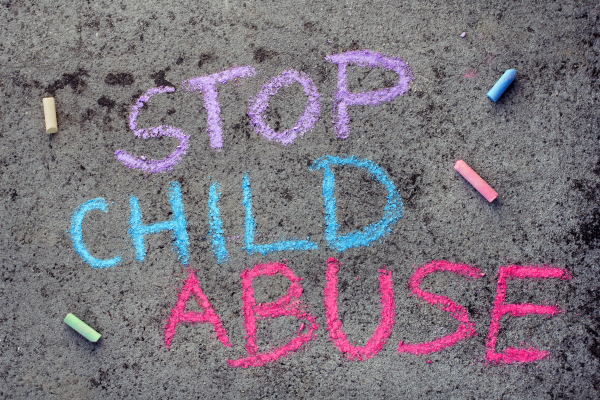COPH offers new graduate certificate in child advocacy studies
April is National Child Abuse Prevention Month
The USF College of Public Health is teaming with the university’s School of Social Work and Department of Criminology, both part of the College of Behavioral and Community Sciences, to offer students a new graduate certificate in child advocacy studies.
The certificate is comprised of three courses—one on child maltreatment, one on victimology and the third on family and community violence in public health. Each course is worth three credits.
By the end of the certificate, students will be prepared to work in the child welfare field, especially in the area of child protective services.

“Students will learn about early intervention and prevention to ensure their advocacy begins at the earliest possible point of connection with the family,” noted Christopher Groeber, an associate in research at USF’s School of Social Work who teaches the course on child maltreatment. “Students will also learn about the importance of lived expertise and experience of those they will be serving and learn to focus on listening to hear not just listening to respond.”
According to Dr. Shelly Wagers, an associate professor of criminology who is teaching the victimology course, students will also get experience by examining real-life cases.
“This provides students with both knowledge and actual practice identifying important aspects of the cases and how to then make real service connections for children and families,” she said. “Students get hands-on experience through simulations that prepare them for the realities of working with families experiencing difficulties and are in contact with the systems trying to help them.”
Why a certificate in child advocacy studies now?
“There’s a huge need for graduate-level education on child advocacy,” said Dr. Abraham Salinas-Miranda, a COPH assistant professor and director of the Harrell Center who is teaching the public health segment of the certificate. “Many professionals work with children and adolescents and get very little training to recognize and respond to cases of child maltreatment. Knowing the phone number to report is not enough; we must also strive to understand the system of services and challenges that professionals and families face when trying to address the needs of victims of child maltreatment.”

Better training not only allows those working in child advocacy to more effectively serve children and their families, it also helps prevent burnout—a condition that plagues the field.
“There is an extremely high turnover rate of child protective services workers, which is cause for concern in a field that requires in-depth knowledge of the issue and skilled practitioners to ensure children and families receive quality care and effective intervention services,” said Dr. Sandra Stone, assistant dean of graduate studies who helped bring the certificate to fruition. “Better prepared workers are more likely to remain on the job and provide higher quality services to children and families in their care.”
According to Salinas, this interdisciplinary certificate course is valuable to anyone working in child advocacy.
“Any professional who interacts with children should apply so they can become more knowledgeable about adverse childhood experiences and child maltreatment—and learn how to effectively address them.”
Story by Donna Campisano, USF College of Public Health
